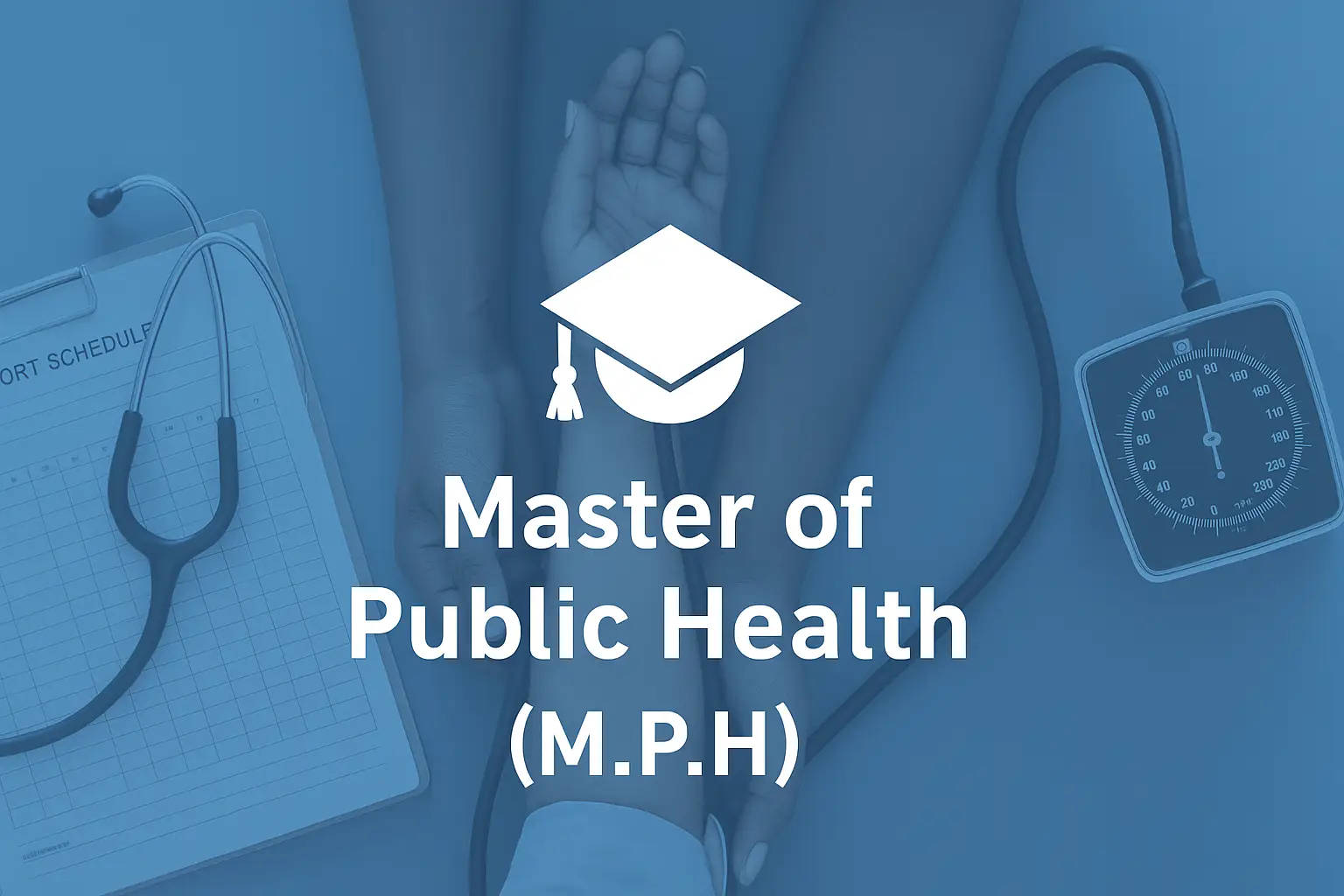Public health is a broad and multidisciplinary field that aims to protect and improve the health of people and their communities. But what does public health mean exactly? How is it different from community health or health care? And why is it important for our well-being? In this blog, we will explore these questions and more.
Definition of health according to WHO, World Health Organization- health is “a state of complete physical, mental and social well-being and not merely the absence of disease or infirmity.” This definition implies that health is not just about the absence of illness but also about the presence of positive factors that enhance our quality of life.
What is Public Health?
When talking about the Public Health meaning, it is the science and art of preventing disease, prolonging life and promoting health through the organized efforts of society. Dimensions of Public health encompass various activities and disciplines, such as epidemiology, biostatistics, environmental health, health policy, health education, health promotion, and health services.
The concept of Public health is often confused with community health or health care, but they are not the same with a vast difference between community and public health.
The discipline of public health was established in Europe after the Industrial Revolution, when rapid urbanization, poor sanitation, and infectious diseases posed serious threats to the population. One of the public health pioneers was John Snow, often regarded as the father of public health for his investigation of the cholera outbreak in London in 1854. He traced the source of the infection to a contaminated water pump and recommended its removal, effectively stopping the epidemic.
Scope of Public Health
Public health has a vast and multidimensional scope, offering many opportunities to impact global well-being. Therefore, a Public Health PG Course can open various doors to new careers and rewarding opportunities. Some of the aspects of the scope of public health are:
- Diverse Career Avenues: Public health professionals can work in various sectors, such as government agencies, non-profit organizations, healthcare facilities, and research institutions.
- Shaping Health Policies: Public health professionals play a pivotal role in shaping health policies. They influence the development of policies that address current health challenges and contribute to building healthier communities.
- Global Impact: Public health professionals make a difference on an international scale. They work with global health organizations and contribute to initiatives addressing pressing health issues.
What are the Features of Public Health?
Some of the key features of Public Health can be understood as follows:
- Surveillance and Epidemiology: Public health constantly monitors health trends and threats through rigorous data collection and analysis. This enables early identification of emerging issues and targeted interventions.
- Prevention and Intervention: Public health focuses on preventing disease and promoting well-being rather than treating illness. This includes vaccination programs, education campaigns, and policies that support healthy behaviors and environments.
- Health Equity and Social Justice: Public health champions equitable access to essential services and resources, striving to address health disparities and promote social justice for all.
Major Areas of Employment in Public Health
Public health offers a diverse and dynamic range of career paths, tackling crucial challenges and addressing health needs across diverse populations. Therefore, an undergraduate degree or a Masters in Public Health can help you explore a wide range of career options in diverse settings Here are some major areas of employment within this ever-evolving field:
- Public Health Administration and Policy: This area focuses on developing and implementing policies and programs that promote public health, oversee public health departments and agencies, and manage public health budgets and resources. Examples of these roles include: Public health director, Policy Analyst, Program Manager, and more.
- Epidemiology and Biostatistics: These fields involve investigating disease outbreaks and patterns, collecting and analyzing health data, and identifying disease risk factors. Some of the key roles in this area include: Epidemiologist, Biostatistician, Data Analyst, and more.
- Environmental Health: This area focuses on assessing and addressing environmental hazards, enforcing environmental regulations, and promoting healthy and sustainable environments. Some of the important roles in this field include: Environmental health inspector, Sanitation Specialist, Air Quality Researcher, and more.
- Community Health Education: This area focuses on developing and implementing educational programs to promote healthy behaviors and address community health concerns. Some of the key roles in this area include: Community health educator, Health promotion specialist, Outreach worker, and more.
Importance of Public Health & its Value in a Country like India
Public health is the field that aims to protect and improve the health of people and communities through various strategies, such as promoting healthy behaviors, preventing and controlling diseases, conducting research, and influencing policies. The importance of public health cannot be overstated, as it affects the health and well-being of everyone. Public health is especially valuable in a country like India, which faces a double burden of communicable and non-communicable diseases, as well as significant health disparities and challenges.
What is Public Health Care System?
A public health care system is a system that provides health services to the population, funded and regulated by the government. A public health care system can help achieve universal health coverage, which means everyone can access quality and affordable health care, regardless of their ability to pay. A public health care system can also help improve the efficiency and effectiveness of health service delivery and the accountability and transparency of health governance.
Major Issues of Public Health
The Public health field also deals with various public health problems, such as infectious and chronic diseases, environmental health hazards, and mental health disorders. Public health also involves public health and hygiene, the practices and measures that prevent the spread of diseases and infections and promote a clean and healthy environment. Along with that, Public health also addresses various public health issues, such as health disparities and inequities, health system strengthening and governance, health security and preparedness, health communication and education, health policy and advocacy, and health research and innovation. Public health is important for the well-being of people and communities and requires a multidisciplinary and collaborative approach.
Conclusion
In conclusion, public health is vital to any society’s well-being, and its significance cannot be overstated. Public health is particularly crucial in India, with significant health disparities and challenges.
It is also a lucrative and rewarding field of study for students and can help them explore a unique career in various fields. There are various universities and colleges offering programmes in public health. A notable option is the Masters in Public Health offered by the Jindal School of Public Health and Human Development (JSPH) at O.P. Jindal Global University. It is a two-year postgraduate degree programme suitable for anyone who wants to pursue a career in public health, irrespective of their background.
The programme offers specialisations including Human Rights and Human Development, Environment Health, Health Systems and Policy, Mental Health, Gender, Sexuality and Health, Humanitarian Relief and International Security. It has an extensive curriculum covering various Public Health course subjects designed to provide students with a comprehensive and interdisciplinary understanding of public health issues and solutions- both on a national and global scale.
A robust public healthcare system can help achieve universal health coverage, improve health service delivery, and ensure accountability and transparency in health governance. We must prioritize public health to build a healthier and safer future for ourselves and future generations.





